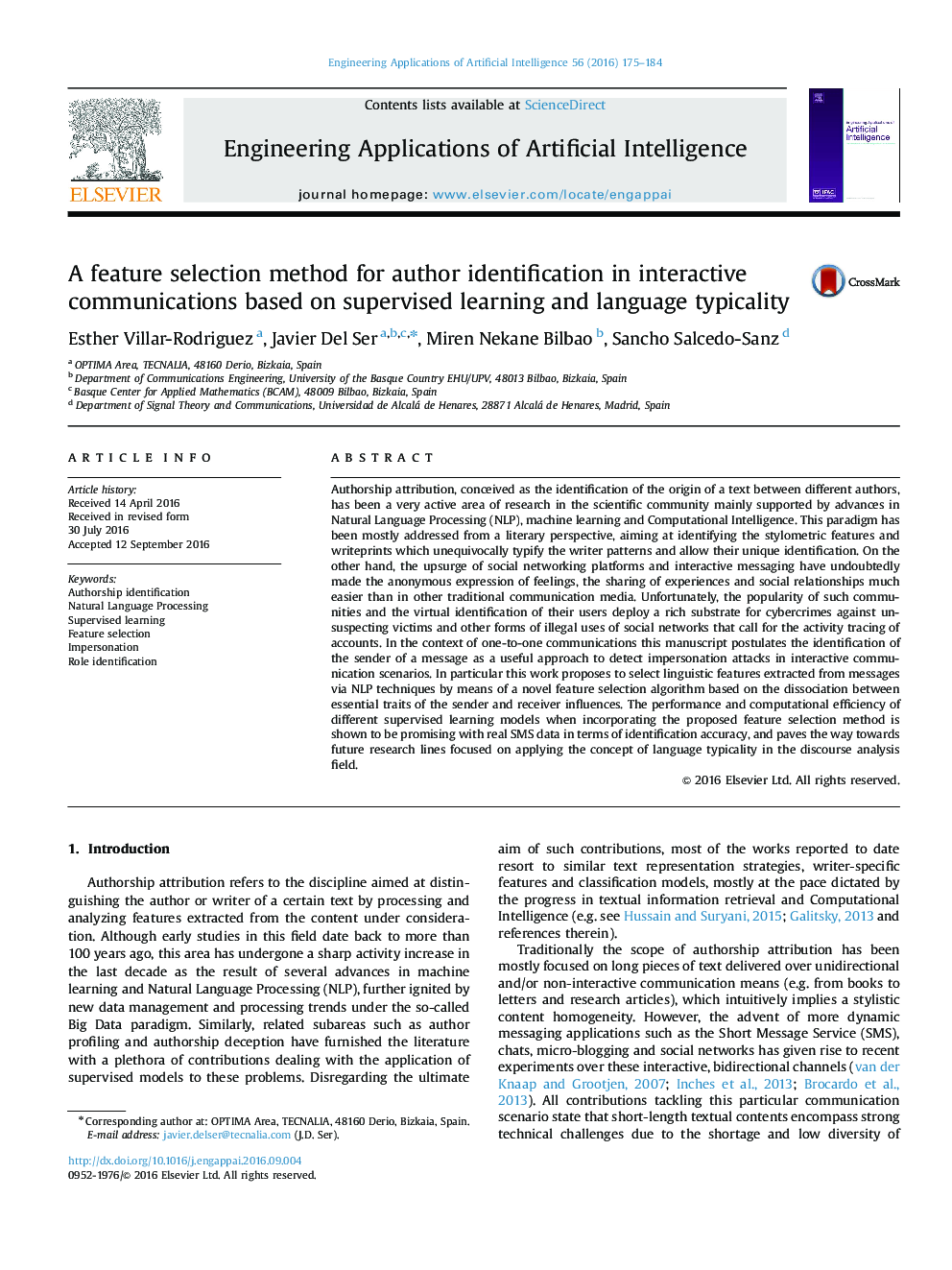| Article ID | Journal | Published Year | Pages | File Type |
|---|---|---|---|---|
| 4942834 | Engineering Applications of Artificial Intelligence | 2016 | 10 Pages |
Abstract
Authorship attribution, conceived as the identification of the origin of a text between different authors, has been a very active area of research in the scientific community mainly supported by advances in Natural Language Processing (NLP), machine learning and Computational Intelligence. This paradigm has been mostly addressed from a literary perspective, aiming at identifying the stylometric features and writeprints which unequivocally typify the writer patterns and allow their unique identification. On the other hand, the upsurge of social networking platforms and interactive messaging have undoubtedly made the anonymous expression of feelings, the sharing of experiences and social relationships much easier than in other traditional communication media. Unfortunately, the popularity of such communities and the virtual identification of their users deploy a rich substrate for cybercrimes against unsuspecting victims and other forms of illegal uses of social networks that call for the activity tracing of accounts. In the context of one-to-one communications this manuscript postulates the identification of the sender of a message as a useful approach to detect impersonation attacks in interactive communication scenarios. In particular this work proposes to select linguistic features extracted from messages via NLP techniques by means of a novel feature selection algorithm based on the dissociation between essential traits of the sender and receiver influences. The performance and computational efficiency of different supervised learning models when incorporating the proposed feature selection method is shown to be promising with real SMS data in terms of identification accuracy, and paves the way towards future research lines focused on applying the concept of language typicality in the discourse analysis field.
Keywords
Related Topics
Physical Sciences and Engineering
Computer Science
Artificial Intelligence
Authors
Esther Villar-Rodriguez, Javier Del Ser, Miren Nekane Bilbao, Sancho Salcedo-Sanz,
